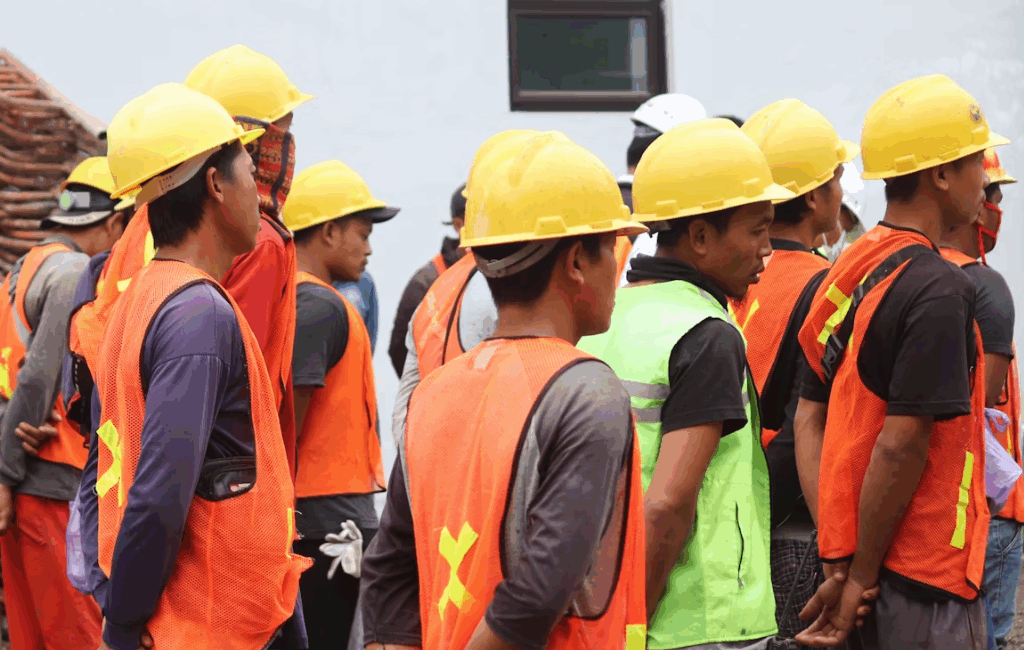
RESEARCH EXCHANGE
How Mediation Grammar can be a driver for the inclusivity and accessibility of public services for immigrants
Author
About
Maryam Karimi, Grazia Concilio, and Giada Casarin
research to policy
The easyRights Horizon Europe project developed a testing methodology called the ‘Mediation Grammar’ to help policymakers and public service providers assess how effectively foreign nationals can access and use public services through mediation. The Mediation Grammar focuses on what people actually experience and achieve when they interact with public services. This is important because effective mediation can empower foreign nationals, whether they be immigrants, refugees or asylum seekers, to make strategic life choices in a context where this ability could have previously been denied to them.
Why a grammar of mediation?
The term ‘mediation’ is well established in migration research and practice. Put simply, it means the linguistic, cultural and administrative support that is provided to immigrants to facilitate their integration. The easyRights project showed how such mediation is vital for enforcing the non-discrimination principle, which ensures that all foreign nationals legally residing in an EU member state can receive equal legal protection from public authorities and are treated in the same way as that Member State’s own nationals.
Drawing an analogy with the idea of “grammar” as a system and structure of a language, we identified three fundamental gaps in how public services mediate for foreign nationals. And we showed that, left unaddressed, these gaps directly undermine the principle of non-discrimination, specifically regarding:
Linguistic accessibility: Administrative texts are often not easily understood by non-native speakers;
Information adequacy: Information provided lacks sufficient clarity, appropriateness, or usability
Actualisation of rights (sequential barriers to rights): The existence of rigid, one-way dependencies between rights, where accessing one service is conditional on previously obtaining another, creates unnecessary hurdles.
What is the Mediation Grammar?
The Mediation Grammar presents a user-centred testing methodology aimed at evaluating how effectively basic public services are designed and delivered in a non-discriminatory manner to their intended beneficiaries, particularly foreign nationals. It places special emphasis on assessing the extent to which these individuals feel empowered in accessing and using these services. Measuring the three gaps illustrated in the following diagram holds immense policy value, but it also requires a single, common testing approach (Mediation Grammar) to address the inherent heterogeneity of Member State public service delivery systems.

The Mediation Grammar that we developed was published by the European Committee for Standardisation (CEN) in July 2023. Its current version is the result of extensive stakeholder engagement and discussion, followed by a public consultation that led to an agreed text. It is not yet an official standard but a consensus-based document reflecting the views and needs of relevant stakeholders. It is applicable on a voluntary basis, either in full or in part, without having the force of a regulation.
You can access the document here as a reference, guideline, or best practice example, which is available free of charge.
How does the Mediation Grammar work, and how can it be implemented?
This document highlights three key areas where migrants may encounter barriers to empowerment in their interactions with public services. Simple questions for users, such as the following, can be explored within each gap.
Language Accessibility: Can I understand and communicate with the service, even if I have limited proficiency in the local language?
Information Adequacy: Am I receiving all the necessary information and guidance in a way that helps me navigate technical or cultural challenges?
Actualisation of Rights: Am I being made aware of all the services I am entitled to and how they are connected to support my rights and needs?
To measure and address the identified gaps (language accessibility, information adequacy, and actualisation of rights), the easyRights Mediation Grammar involves three key stages for public services supporting foreign nationals:
Stage one: Assess the ‘as-is’ situation: Understand the current service delivery by measuring metrics like the number of empowered users per period or the median waiting time from application to achieving desired outcomes.
Stage two: Analyse user data: Collect detailed information on service users—their backgrounds, demographics, and needs—to define the specific mediation gaps across the three perspectives.
Stage three: Implement improvements: Take targeted action with appropriate service enhancement measures to increase empowered users and reduce waiting times.
Who should consider implementing the Mediation Grammar?
The Mediation Grammar is designed for practical implementation across various levels of governance. Below we highlight key actors, from EU agencies to local service providers, and outline how this methodology can specifically support their efforts in fostering more people-centred and effective public services for foreign nationals:
The European Union Agency for Asylum (EUAA): To establish a monitoring mechanism for the operational and technical application of the Common European Asylum System (CEAS), as per EU regulation. This would improve to access to services for asylum applicants as well.
EU Member States and Regions: To introduce common mechanism for enforcing the non-discrimination principles and assessing existing service delivery systems regardless of their organisational differences.
Cities and local service providers (NGOs etc.): To evaluate, benchmark, and improve the capacity of public services to empower beneficiaries towards the achievement of expected outcomes and to ensure equal treatment and better outcomes for foreign residents and support their empowerment and access to rights.
Learn more:
-‘The Mediation Grammar‘ (CWAulti 18014:2023)
-The recording of the High-Level Policy Roundtable on the Future of Migrants -Integration is available on the website of the European Commission.
-The easyRights solutions
–TED Talk on the easyRights project.
Maryam Karimi is an Assistant Professor in Urban Planning at the Dipartimento di Architettura e Studi Urbani (DAStU), Politecnico di Milano. – ORCID
Grazia Concilio is Full Professor of Urban Planning and Design and Coordinator of easyRights project, at the Dipartimento di Architettura e Studi Urbani (DAStU), Politecnico di Milano – ORCID
Giada Casarin is Postdoctoral Researcher at Dipartimento di Architettura e Studi Urbani (DAStU), Politecnico di Milano. – ORCID
Submit your idea for a ‘short’ to be featured on the Co-Lab.












